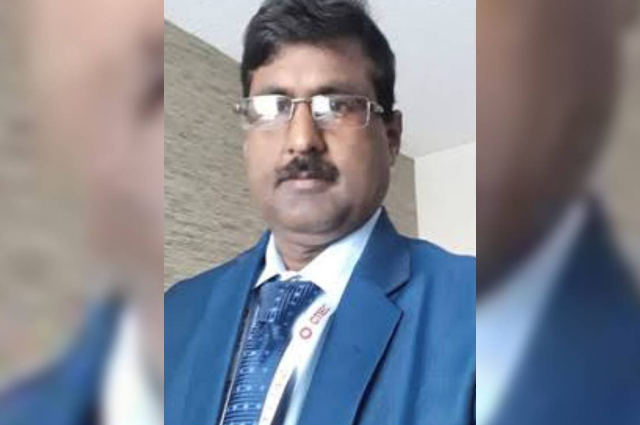
The interview was taken online on May 10/2021 by Saikat Kumar Basu on the occasion of the 34th Science Communication and Media Practices course conducted jointly by the Indian Science News Association (ISNA) and Vigyan Prasar at Raja Bazar Science College, University of Calcutta. Dr. Sitendu Mandal is the Chief Scientist and Head of the Department of the Specialty Glass Division (SGD) at the Central Glass and Ceramic Research Institute (CGCRI) located at Jadavpur, Kolkata, West Bengal. India. Dr. Mandal with numerous scientific publications to his credit and with many years of experience as a researcher provided his perspective on education, training, and experience as well the peace and prosperity in the society.
Saikat Kumar Basu: What was your inspiration to get into a science career?
Sitendu Mandal: I love this question. I have been passionate about science since my student days. But when I explored the facilities and mandates of CGCRI, I felt inside that I can contribute something to this research discipline. I came here following an advertisement for a position that captured my interest in science, deep passion for research, and mg thirst for technological development. This possibly connected me somehow very deeply and passionately to glass research and that has been my internal inspiration that helps to move forward.
Saikat Kumar Basu: What are the challenges or obstacles you faced as a professional in your career as a scientist?
Sitendu Mandal: When I started my career the new technologies in glass and ceramics were not available or nonexistent. Also from the perspective of instrumentation, we were a backward country. Hence, initially, it was a monumental challenge for me to start my work. However, through serendipity and over time we have been successful as a great team in developing new technologies essential for development. Also, more sophisticated scientific instruments and gadgets became available and accessible to us. That started making a difference.
Saikat Kumar Basu: What are your plans?
Sitendu Mandal: I look forward to continuing working and making contributions in my research area on glasses to support our growing industrial needs. My goal is to expand and elevate our research work so that we do not depend too much as of now on foreign countries for the supply of technology, products, and Human Resources. We need to be capable of standing alone and dominating the global industry successfully through our time-appropriate technical innovations and ideas.
Saikat Kumar Basu: What are your thoughts on the India science education program?
Sitendu Mandal: I am not quite knowledgeable concerning the quality of primary, secondary, and tertiary levels of education in India. I am a scientist by profession and am mostly involved in advanced research work in glasses at CGCRI. Nonetheless, I feel that we need changes at both national and state level school curricula to include more latest developments in science and technology. Our students need to get more laboratory experiences for fueling their interest in science and technology.
Saikat Kumar Basu: What are your valuable observations on the latest science trends in India? Do you think Indian science research both fundamental and applied areas are making significant progress compared to other developed and developing nations?
Sitendu Mandal: This is a good question and I think there is no doubt that Indian science and technology have made a big difference to our quality of life, economic developments, defense, and security. Over the last few decades Indian scientists, researchers, scholars, and academics have made substantial contributions in terms of high-quality publications, filing patents, and making both national and global impacts. Several researchers trained in highly reputed foreign institutes, universities and labs have joined Indian institutions over the past two decades and these are success stories that we need to cherish and highlight. But at the same time, there is a need for establishing more research institutes, universities, and colleges to cater to our substantially large population base. There is also a need for some practical changes to our current education policy based on the ground realities, economics, current industrial and agricultural needs, and the need for human resources to maintain our supply chain of good scientific personnel to carry India forward. I sincerely believe that by working together on this we will make a stronger impact in the future.
Saikat Kumar Basu: How do you feel the Indian lab to land information transmission is working at the ground level to bring benefits to the ordinary people?
Sitendu Mandal: Although we are seeing phenomenal progress concerning Indian science and technology. But, it’s true that we need to do a lot of groundwork in making the lab-to-land transition more effective. We have good policies and proposals, but on the ground, level changes are needed to make things more flowing and acceptable. The government has allocated funds for the promotion of information dissemination at the ground level but we also need meticulous monitoring to make sure that these are reaching our communities. We all need to work towards this earnestly to make sure that the benefits of technology development are reached and shared by all Indian citizens.
Saikat Kumar Basu: Any thoughts or suggestions for budding science communicators?
Sitendu Mandal: An aspiring science communicator must be hard working and all-rounded individual. He/she needs to be dedicated and enthusiastic towards science and technology and must be meticulously following the development, evolution, and progress with sincerity. Good writing and communication skills should be developed through active participation and tedious practice. I wish all of you a very successful future career in science communication.
